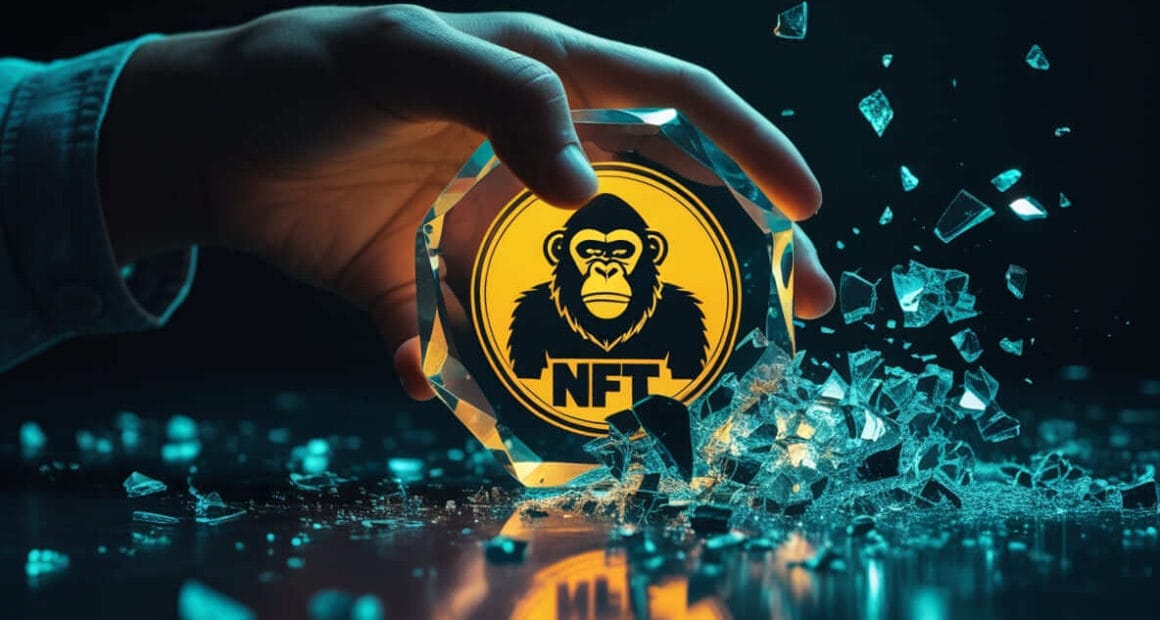When Your Favorite Star Steals Your Money
January 2022. A teenager in Ohio spent $5,000 on an NFT. Why? Because his favorite celebrity promoted it on Instagram. The post had millions of likes. The celebrity seemed excited. The project looked legitimate.
Three weeks later, the NFT was worthless. Moreover, the celebrity deleted the post. Additionally, the project creators vanished with $2 million. The teenager’s savings? Gone forever.
This wasn’t an isolated incident. Instead, it happened thousands of times. Celebrities with massive followings promoted NFT projects. Then, fans lost millions. Meanwhile, the stars rarely faced consequences.
Let’s investigate how NFT celebrity scams work and who got caught.
What Are NFTs Anyway?
First, let’s make this simple. NFT stands for “Non-Fungible Token.” Basically, it’s a digital certificate of ownership. Think of it like this: you can own a unique digital image, video, or collectible.
Here’s how it works:
- Someone creates digital art
- They turn it into an NFT on the blockchain
- You buy it with cryptocurrency
- You now “own” that digital item
Initially, this seemed revolutionary. After all, digital artists could finally sell their work. Furthermore, collectors could prove ownership. Additionally, some NFTs sold for millions.
However, criminals saw an opportunity. Specifically, they realized celebrities could attract massive investments. Consequently, NFT scams exploded.

The Celebrity NFT Scam Formula
The scam follows a simple pattern. First, scammers create an NFT project. Then, they contact celebrities or influencers. Next, they pay them to promote it. Finally, they disappear with the money.
Here’s the typical timeline:
Week 1: The Launch
- Celebrity posts about “exciting new NFT project”
- Millions of followers see it
- Fans rush to buy
Week 2: The Hype
- More celebrity posts appear
- Prices seem to rise
- FOMO (fear of missing out) spreads
Week 3: The Crash
- Project creators vanish
- Website goes offline
- NFTs become worthless
Week 4: The Aftermath
- Celebrity deletes posts
- Fans demand refunds
- Nobody takes responsibility
Meanwhile, millions of dollars have disappeared.

Kim Kardashian’s $1.3 Million Fine
Perhaps the most famous case involved Kim Kardashian. In June 2022, she promoted EthereumMax on Instagram. The post reached her 330 million followers. She called it an exciting opportunity.
However, she didn’t mention something important: EthereumMax paid her $250,000 to make that post.
Soon after her promotion, the token price spiked. Fans rushed to buy. Then, the price crashed 97%. Investors lost millions. Meanwhile, Kardashian stayed silent.
Eventually, the SEC stepped in. They charged her with illegally promoting a crypto security. Specifically, she failed to disclose the payment. In October 2022, Kardashian agreed to pay $1.3 million in penalties.
Nevertheless, fans who lost money got nothing back.
The lesson: When celebrities promote investments, they’re often getting paid. Moreover, they rarely care about your financial safety.

Logan Paul’s CryptoZoo Disaster
Logan Paul, a popular YouTuber with millions of fans, launched CryptoZoo in 2021. He promised it would be an exciting NFT game. Players could buy NFT eggs. Then, they’d hatch into animals. Additionally, these animals would earn you money.
Paul promoted it enthusiastically. He made videos about it. Furthermore, he appeared on podcasts discussing the project. Consequently, fans invested heavily. The project raised over $18 million.
But here’s what actually happened:
The Promise:
- Fun NFT game
- Earn passive income
- Animals breed and create value
The Reality:
- Game never worked properly
- No way to earn money
- Technical problems everywhere
- Team disappeared with funds
By 2023, the game was essentially dead. Investors had lost millions. Meanwhile, Paul faced multiple lawsuits. Additionally, former team members exposed the fraud publicly.
In January 2023, Paul finally addressed the disaster. He blamed others. However, he offered no real refunds. To this day, most investors remain unpaid.

DJ Khaled and Floyd Mayweather: The Double Trouble
DJ Khaled and boxer Floyd Mayweather both promoted Centra Tech. This company claimed to offer crypto debit cards. Additionally, they promised revolutionary blockchain technology. The celebrity endorsements made it seem legitimate.
However, the entire company was fake. The founders had lied about everything. There were no partnerships with Visa or Mastercard. Moreover, the technology didn’t exist. Instead, it was pure fraud.
In 2018, the founders were arrested. They pleaded guilty to fraud charges. Meanwhile, both Khaled and Mayweather faced SEC charges. Specifically, they failed to disclose their paid promotions.
The penalties:
- DJ Khaled: $152,500 fine
- Floyd Mayweather: $614,000 fine
Yet investors lost over $32 million. Once again, the celebrities paid small fines while fans lost everything.

The Bored Ape Yacht Club Copycat Scams
Bored Ape Yacht Club (BAYC) became incredibly valuable. Some apes sold for millions. Naturally, scammers saw an opportunity. Consequently, they created fake BAYC projects.
Here’s how it worked:
Step 1: Create a Fake Project
- Copy BAYC art style
- Make a similar-looking website
- Use confusing names like “Bored Ape Kids Club”
Step 2: Get Celebrity Promotion
- Pay influencers for posts
- Use fake celebrity accounts
- Create artificial hype
Step 3: The Rug Pull
- Sell thousands of NFTs
- Disappear with money
- Leave worthless tokens behind
Several celebrities unknowingly (or knowingly) promoted these fakes. For instance, various athletes and musicians posted about copycat projects. Subsequently, their fans lost millions buying worthless NFTs.
The real Bored Ape team had to constantly warn about fakes. However, the scams kept coming.

Paris Hilton and the Price of Promotion
During the NFT craze of 2021, few celebrities were bigger promoters than Paris Hilton. She appeared on late-night talk shows to flaunt her Bored Ape NFTs and launched her own successful collections, adding fuel to the market frenzy. While many of her followers rushed to buy into the hype she promoted, the subsequent market crash left them holding near-worthless digital assets.
The claim of “no consequences,” however, is false. In late 2022, Hilton was named in a major class-action lawsuit. The suit alleges that she, along with other celebrities, participated in a deceptive scheme to promote and artificially inflate the value of Bored Ape Yacht Club (BAYC) NFTs, leaving ordinary investors to suffer devastating losses while they profited. The pattern was a brutal one seen across the industry: celebrities would hype a project, their fans would invest, and when the project collapsed, the celebrity would quietly move on while their followers were left with nothing.
The SEC Finally Takes Action
By 2022, the problem had become too big to ignore. Therefore, the Securities and Exchange Commission started cracking down. They issued warnings about celebrity crypto promotions. Additionally, they began investigating major cases.
In March 2023, the SEC proposed new rules. Specifically:
- Celebrities must clearly disclose payments
- Social media posts need proper disclaimers
- Penalties would increase significantly
However, enforcement remained challenging. After all, celebrities can delete posts instantly. Moreover, many promotions happen through private messages. Furthermore, proving intent is difficult.
How to Spot Celebrity NFT Scams
Fortunately, these scams follow predictable patterns. Here are the warning signs:
🚩 Red Flag #1: Vague Benefits Celebrity says: “This project is amazing!” But it doesn’t explain what it actually does.
🚩 Red Flag #2: Urgency Tactics “Only 24 hours left!” “Don’t miss out!” “Last chance to buy!”
🚩 Red Flag #3: No Risk Discussion Legitimate investments mention risks. Scams only promise profits.
🚩 Red Flag #4: Anonymous Creators: Who’s actually running the project? If you can’t find real names, run away.
🚩 Red Flag #5: Celebrity with No Crypto History Suddenly, someone who never mentioned crypto is an “expert”? Suspicious.
🚩 Red Flag #6: No Clear Disclosure. The post doesn’t say “#ad” or “paid promotion”? That’s illegal and suspicious.

What Happens to the Money?
When fans buy these scam NFTs, where does the money go?
Typical Distribution:
- 40-60%: Scam creators pocket it
- 20-30%: Celebrity payment
- 10-20%: Marketing and fake hype
- 5-10%: Technical costs
- 0%: Actual product development
This explains why the projects always fail. Because the creators never intended to build anything real. Instead, they just wanted to cash out and disappear.
Real Victims, Real Losses
Behind these statistics are real people. Consider these examples:
Sarah, Age 24, Lost $8,000: “I trusted her because she had 50 million followers. I thought she wouldn’t promote a scam. I was wrong.”
Mike, Age 19, Lost $12,000: “It was my college savings. The celebrity deleted his post three days after I bought in. I’ve got nothing left.”
Jennifer, Age 35, Lost $25,000: “I’m a single mom. That money was supposed to help my kids. Now I’m working two jobs to recover.”
These aren’t isolated cases. Instead, thousands of people lost life-changing amounts. Meanwhile, most celebrities faced minimal consequences.

The Current State of NFT Celebrity Scams
Today, NFT celebrity scams have decreased. Why? Several reasons:
Market Collapse:
- NFT hype has faded
- Fewer people buying
- Less money to steal
Increased Scrutiny:
- SEC watching closely
- Media exposure
- Public awareness
Legal Consequences:
- Some celebrities sued
- Fines being issued
- Criminal investigations ongoing
However, the scam hasn’t disappeared. Instead, it has evolved. Now, scammers use:
- Private communities
- Encrypted messaging
- Lesser-known celebrities
- Different crypto products
Protecting Yourself
If you’re considering any celebrity-endorsed investment, follow these rules:
Rule #1: Assume it’s paid. Every celebrity endorsement is probably paid. Therefore, treat it as advertising, not advice.
Rule #2: Research Independently. Don’t rely on celebrity opinions. Instead, investigate the project yourself. Look for:
- Real team members with verified backgrounds
- Working product or prototype
- Honest discussion of risks
- Independent reviews
Rule #3: Never Invest Based on FOMO Scammers create artificial urgency. However, legitimate investments don’t require rushed decisions. Therefore, take your time.
Rule #4: Check SEC Records. The SEC maintains records of enforcement actions. Before investing, search for:
- The celebrity’s name
- The project name
- Related companies
Rule #5: If It Sounds Too Good to Be True… It probably is. Legitimate investments involve risk. Meanwhile, scams only promise profits.
The Bottom Line
NFT celebrity scams reveal an uncomfortable truth. Many celebrities don’t care about their fans’ financial well-being. Instead, they prioritize easy money from promotions.
The pattern is clear:
- Get paid to promote
- Fans lose money
- Pay a small fine (maybe)
- Keep most of the payment
- Move on to next promotion
Currently, fans bear all the risk. Meanwhile, celebrities keep the rewards. This system won’t change until:
- Regulators impose serious penalties
- Fans stop trusting celebrity endorsements
- Legal accountability increases dramatically
Until then, remember this: Your favorite celebrity doesn’t know you. Moreover, they didn’t research the investment. Furthermore, they’re getting paid regardless of whether you profit or lose everything.
So next time a celebrity promotes an NFT, crypto, or any investment, ask yourself: “Would I buy this if a stranger on the street suggested it?”
Because that’s essentially what’s happening. Except the stranger has millions of followers and a verified checkmark.
Stay skeptical. Stay safe. And never invest money you can’t afford to lose.
Especially not because a celebrity told you to.
Citations
[6]Logan Paul accused of misleading fans over crypto investments
Related reading(suggested)
PlusToken Fraud: The Multi-Billion Dollar Ponzi from Asia
Before You Invest: Learn from the 10 Biggest Crypto Scams
Fake Crypto Exchanges: 20 Red Flags of an Empty Vault
Forex Trading Scams: Why 95% of Forex Courses Are Fraudulent









